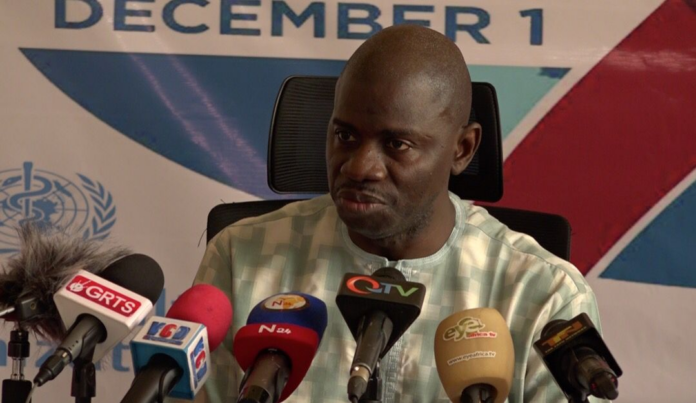By: Dawda Baldeh
Ousman Badjie, the Director of the National AIDs Secretariat has called for reform of laws, policies and practices to address the challenges faced by people living with HIV/AIDs in the country.
He made these remarks at a press conference held at the National AIDs Secretariat office to update journalists on their activities ahead of the commemoration of the 2022 World AIDS day.
This year’s theme is “equality” which highlights several ways in ending inequality faced by persons with HIV/AIDs.
The Day is commemorated annually on 1st December to honor the millions of people who lost their lives due to HIV/AIDs and recommit countries’ efforts to eliminate HIV/AIDs in 2030.
Mr. Badjie highlighted some of the major challenges in the fight against HIV/AIDs.
“We are not able to test every Gambian. Even those whom we have tested and indicated positive; we’ve not been able to make sure they get all the treatment.
This remains a formidable challenge for us in our response to ending HIV/AIDs,” he said.
He told journalists that persons living with HIV continue to face stigma, discrimination and inequality due to the disease which is a global health problem.
He revealed that they intend to create more awareness campaigns to end discrimination through community outreach.
“We will continue to work with partners towards ending HIV/AIDs and expand the treatment services to various communities.
People living with the disease are facing stigma and discrimination. We want this to stop and we encourage people to go for testing. We will further sensitize the public on the importance of the test and treatment which is free.
We must intensify efforts to increase the availability of quality and sustainability of services for HIV treatment, testing and prevention,” he added.
Officials urged journalists to champion the fight to end the stigma facing people living with the disease by giving out relevant information.
Mr. Badjie, added that there are communities that are under privilege when it comes to the treatment of HIV diseases.
Stigma, discrimination, and inequality are the key areas that the theme emphasizes and calls for collective efforts in attaining the goal of ending HIV by 2030.
Meanwhile, Sirra Horeja Ndow, UNAIDs Country Director, and Mam Kumba Sise, Global Fund Project Manager ActionAid the Gambia, both said the day is worth commemorating to reflect on the achievements and renew commitments to ending the deadly disease.
“The current challenge we are facing in the world to ending the sexually transmitted disease is disunity which is holding back the ending of HIV/AIDs. Others include; access to the right services for adolescent girls and young women and inequality against children living with the disease,” Mrs. Sirra Horeja Ndow said.
“We have said we will stop new infections, secure the rights for people living with the disease. We will continue to fight to ensure that those who don’t have the disease remain free from it,” Mam Kumba Sise assured.
The National Aids Secretariat outlines several challenges facing the institution in combating AIDS; one of which they claimed is people’s refusal to voluntarily go for the free HIV/AIDS testing and treatment.




